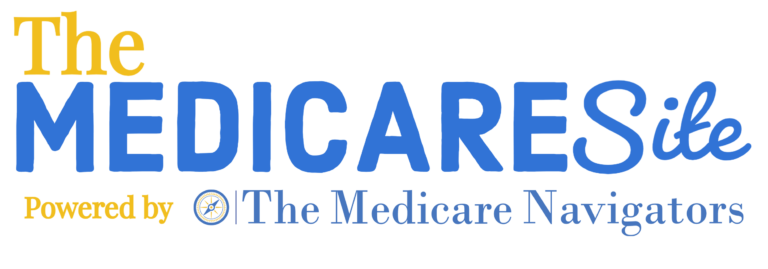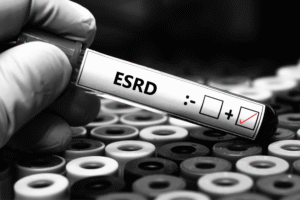Medicare Advantage (Part C) plans offer a convenient way to get your Medicare Part A and B benefits — often with extra perks. But these plans often come with copays and coinsurance that can quickly add up in the event of an emergency and hospital stay. This is where a hospital indemnity plan comes in. Hospital indemnity insurance with Medicare Advantage is designed to help you manage these unexpected expenses. When paired with your Medicare Advantage plan or High-Deductible Health Plan, it can provide financial protection against unexpected medical events.
What Is Hospital Indemnity Insurance?
A hospital indemnity plan is a type of supplemental insurance that pays a fixed cash benefit when you’re hospitalized. The payout is typically per day or per event, depending on the policy. These benefits are paid directly to you, not your medical provider — giving you the flexibility to use the funds however you need. Indemnity benefits help preserve your savings and retirement income by reducing out-of-pocket surprises. Hospital indemnity plans don’t just help with hospital expenses, they also cover other benefits below.
Key Benefits of a Hospital Indemnity Plan
- Inpatient Hospital Confinement
- Hospital Observation
- Ambulance Transportation
- Cancer
- Emergency Room
- Outpatient surgical
- Outpatient Major Diagnostic (CT, MRI, PET)
Why Medicare Advantage plans need Hospital Indemnity Coverage
Medicare Advantage (MA) plans are a great choice to save on premiums with added benefits like vision, dental, and prescription drug coverage. But they often come with various copays or coinsurance for different health related services. Emergencies that require hospitalization and ambulance transportation usually have higher copays than normal medical services. These gaps in coverage can create expensive medical bills.
Example of Common Medicare Advantage Copays
- A typical MA plan might charge $250–$400 per day for the first 4-8 days of a hospital stay.
- Ambulance services may come with a $250+ copay.
Even though all Medicare Advantage plans have a maximum out-of-pocket cost limit, these costs can create a financial burden when you are on a fixed income. A hospital indemnity insurance plan is the best way to fill these coverage gaps.
How Hospital Indemnity Plans Work with Medicare Advantage
As mentioned, your Medicare Advantage plan has various copays or coinsurance for different health related services. When an event occurs, your hospital indemnity plan will pay you a fixed cash benefit, either per day or per incident. The daily benefit is usually for the same amount as your Medicare Advantage daily copays for covered events. This way, your hospital indemnity plan is paying you the funds to cover your copays.
Unexpected medical costs can derail your budget. Hospital indemnity insurance with your Medicare Advantage helps preserve your savings and retirement income by reducing out-of-pocket surprises. Pairing a hospital indemnity plan with a Medicare Advantage plan is a smart strategy. Since most Medicare Advantage plans have little to no premium, adding an indemnity plan can fill the gaps while maintaining low monthly costs.
Real-Life Example: Hospital Indemnity with Medicare Advantage Costs
Mr. Smith is admitted to the hospital with a medical emergency. He required an ambulance ride and stayed in the hospital for 6 days. His Medicare Advantage copays for a hospital stay is $295 per day for the first 7 days. His copay for an ambulance is $200. This medical emergency would cost him $1,970 with his Medicare Advantage alone. But Mr. Smith also has a Hospital indemnity plan with an ambulance rider. His indemnity plan covers his hospital stays at $300 per day for 7 days, and his Ambulance is covered at $150. His plan will pay him $300 x 6 = $1,800 for the hospital stay, plus $150 for his ambulance ride. This means he will get a cash payment of $1,950. This covers all but $20 of his hospital emergency.
Who Should Consider a Hospital Indemnity Plan?
A hospital indemnity plan may be a good fit if:
- You’re enrolled in a Medicare Advantage plan or a High Deductible Health Plan with high hospital copays
- You have fixed or limited income and need protection from high medical costs
- You want peace of mind knowing you’re covered in an emergency
- You have chronic conditions that increase the risk of hospitalization
Cost of Hospital Indemnity Plans
Premiums vary depending on age, health, and benefit levels, but many plans are affordable — often as low as $30 per month to cover your hospital stays. And since these plans are guaranteed renewable, your coverage can continue as long as you pay your premiums — even if your health changes.
Talk to a licensed agent to get a quote on the right Hospital Indemnity plan for your Medicare Advantage coverage. A licensed agent can look at your Medicare Advantage coverage and match copay amounts with a hospital indemnity payouts. This will ensure you are adequately covered and not paying more than you need for an indemnity plan.
Underwriting Requirements for Hospital Indemnity Plans
If you are ages 60-74, you will have guaranteed issue without any underwriting for a max benefit amount. The max benefit amount that is allowed without underwriting is sufficient to cover most Medicare Advantage plan copays. If you want to increase the benefit payouts amount to higher levels, then you would have to go through Simplified Underwriting. Simplified Underwriting includes weight and height requirements, and a series of health-related questions.
Hospital Indemnity with other High Deductible Health Plans
Absolutely! Hospital Indemnity Plans are a great way to fill the gaps of any health plan that has higher deductibles, copays and maximum out-of-pocket costs. If your health plan can create financial hardship from any unexpected health events, then an indemnity plan can help you reduce your exposure. Many employer group plans have high deductibles and high copays these days. Some Medicare Supplement plans (Plan K and Plan L) cover less and have higher out-of-pocket costs. In both scenarios, a Hospital Indemnity plan can help fill the gaps and safeguard your finances during a health emergency.

Final Thoughts: Protect Your Finances from Unexpected Hospital Costs
Hospital indemnity insurance acts as a financial safety net, covering the high out-of-pocket expenses that can arise from unexpected health incidents. Whether you’re living on a fixed income, managing a chronic condition, or simply want added peace of mind, a hospital indemnity plan is a smart and affordable solution. Talk to a licensed agent today to explore your options and customize a plan that works seamlessly with your Medicare Advantage or other high deductible health plan.








Nice. Very imformative for those entering the world of soon to need part b and deciding between supplement plans and advantage plans.